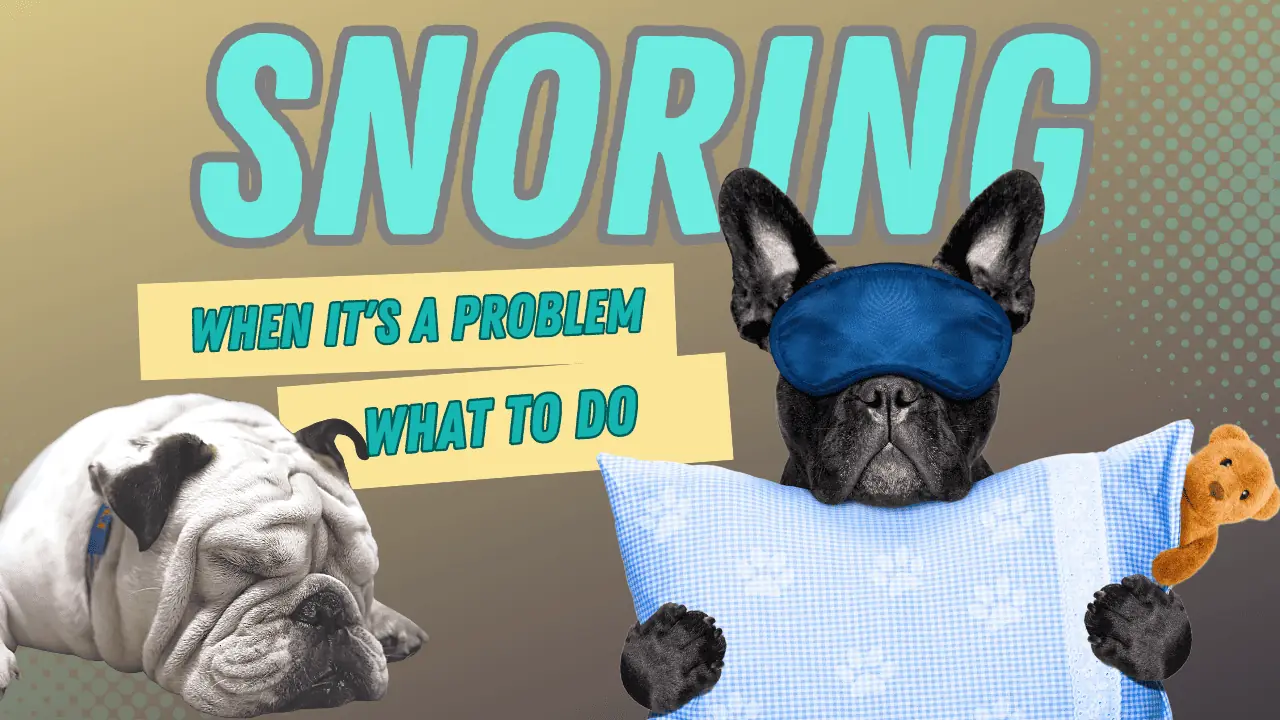English Bulldogs are a beloved breed for many reasons, but one of their most notable traits is their tendency to snore. If you’re a bulldog owner, you’ve likely become accustomed to the sound of your furry friend sawing logs while they sleep. But have you ever stopped to wonder why bulldogs snore in the first place?
The answer is simple: bulldogs snore because of their unique anatomy. Bulldogs have short, broad heads and a flat face, which is known as brachycephaly. This facial structure causes a few different issues that can lead to snoring.
Firstly, bulldogs have narrow nostrils and a relatively small windpipe. This can make it difficult for them to breathe normally, especially when they’re sleeping. As a result, they may breathe through their mouths and make snoring sounds.
Secondly, bulldogs have a soft palate that is longer than normal. This soft tissue at the back of their throat can vibrate as they breathe, which can also cause snoring.
Lastly, bulldogs often have excess tissue in their throats, which can further obstruct their airways and make snoring more likely.
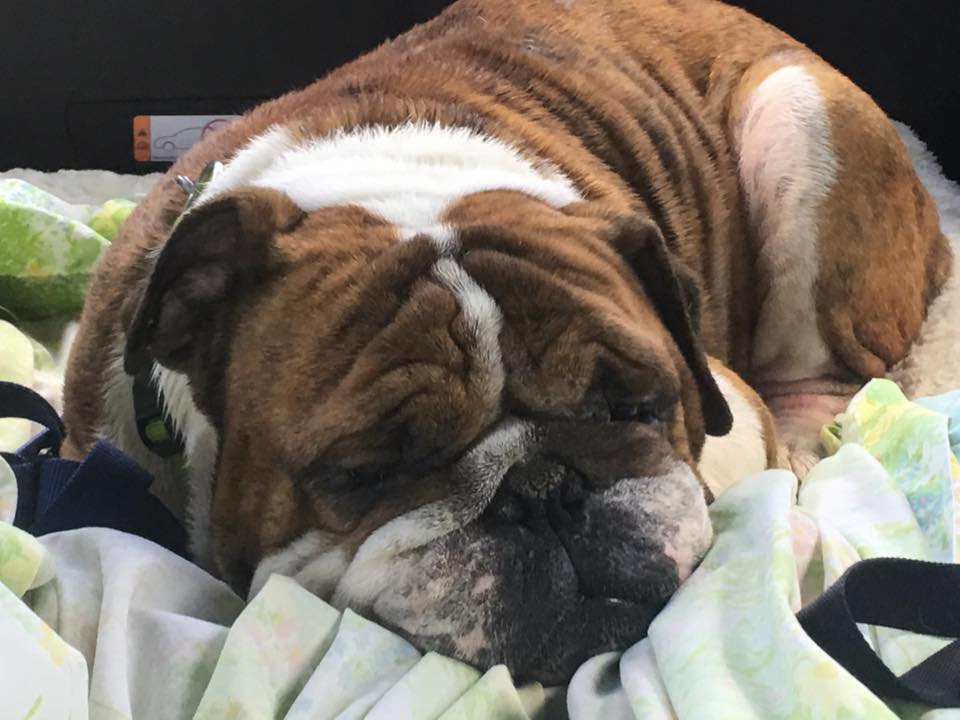
When Snoring Becomes a Problem
While snoring may be a normal part of a bulldog’s life, it’s important to recognize when it might be a sign of something more serious. In some cases, snoring can indicate a health problem that needs attention.
One of the most common issues associated with bulldog snoring is sleep apnea. Sleep apnea is a condition where a person or animal stops breathing periodically while they sleep. It can be caused by an obstruction in the airway, which is often the case with bulldogs.
Sleep apnea can be dangerous if left untreated. It can cause fatigue, headaches, and other health problems. In severe cases, it can even lead to heart disease or other life-threatening conditions.
If you notice that your bulldog’s snoring is particularly loud or seems to be getting worse over time, it’s important to talk to your veterinarian. They may recommend a sleep study to determine if your dog has sleep apnea or another underlying condition.
Remedies for Bulldog SnoringRemedies for Bulldog Snoring
Fortunately, there are a few things you can do to help reduce your bulldog’s snoring. Here are a few remedies to try:
1. Elevate Their Head
By elevating your dog’s head while they sleep, you can help to open up their airways and reduce snoring.
You can do this by placing a pillow or a rolled-up towel under their head, or by using a special dog bed that’s designed to provide support for their neck and head. At times, you may already notice your bulldog propping their head up as they rest. This is so they can breathe better.
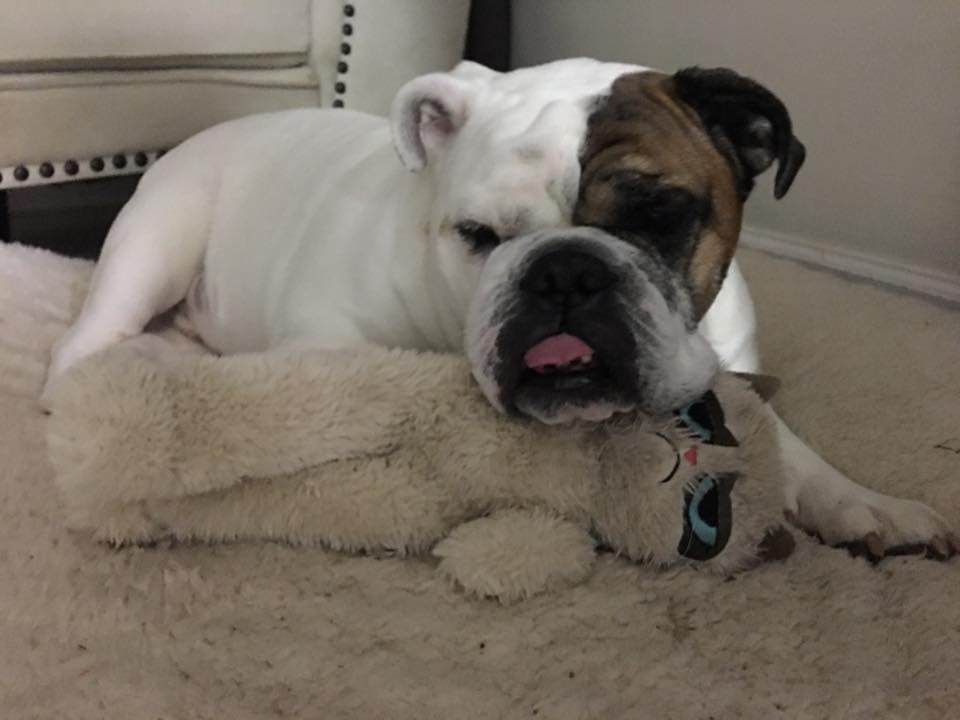
2. Maintain a Healthy Weight
Let’s be honest with ourselves, Bulldogs are not the most active dogs. If your bulldog is overweight, losing a few pounds can help reduce snoring. Extra weight can put pressure on the airways and make it harder for your dog to breathe normally.
3. Use a Humidifier
Humidifiers are not just for people. If your bulldog has nasal congestion, this can contribute to snoring. A lack of moisture in the air can cause your bulldog’s throat and mouth to become dry, leading to snoring.
To help alleviate this, consider placing a humidifier in your bulldog’s sleeping area to keep the air moist and ease breathing. This help to keep the air moist and reduce nasal congestion, which can in turn reduce snoring. Make sure to choose a humidifier that’s designed for pets and is easy to clean.
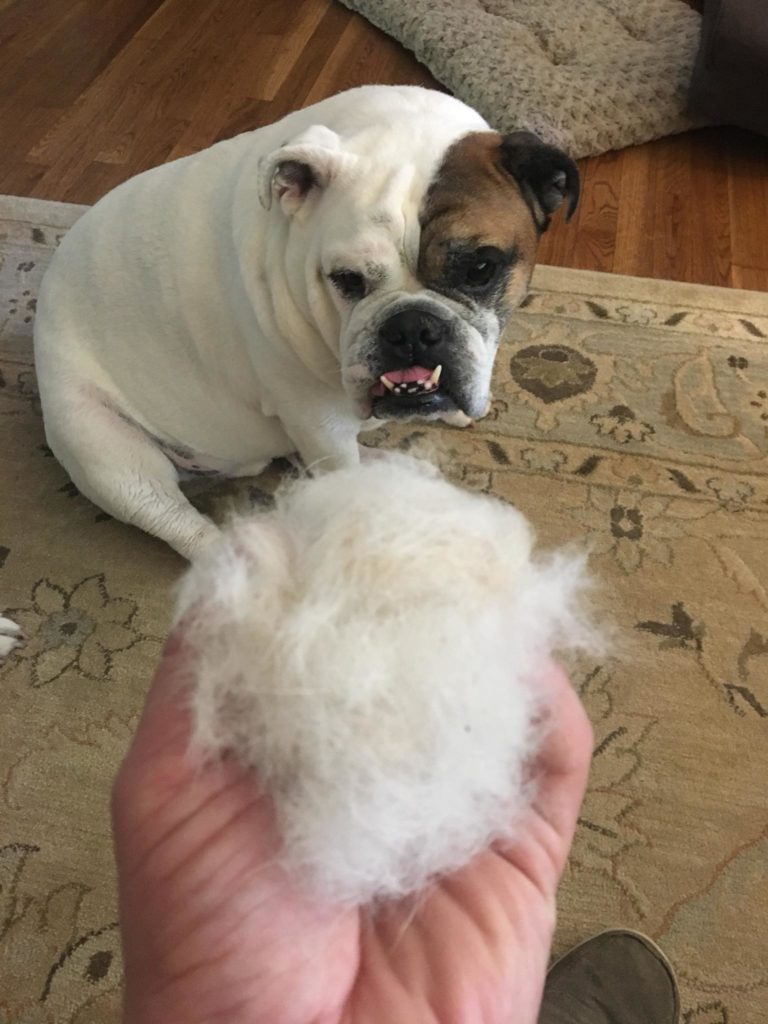
4. Avoid Allergens
If your bully is prone to allergies, this can contribute to snoring.
To reduce the risk of allergies, it’s important to avoid exposing your dog to potential allergens, such as dust mites, pollen, and mold.
Keeping your home clean and dust-free can help to reduce the risk of allergies and reduce snoring.
5. Change Your Dog’s Sleeping Position
One of the simplest ways to tackle bulldogs’ snoring is to change their sleeping position.
Bulldogs are notorious for sleeping on their backs, which can exacerbate snoring. Encouraging your dog to sleep on their side can help reduce snoring.
READ: Kennel Cough in Dogs – Symptoms, Treatment & Prevention
6. Bulldog Snoring surgery
This is a last resort. Anyone experienced with bulldogs knows, you always try to avoid surgery. The short snouts make it difficult for them to go under anesthesia during surgery.
In some cases, surgery may be necessary to treat snoring in bulldogs. If your bulldog has a physical abnormality in their airways, surgery may be needed to correct this problem and reduce snoring.
Some symptoms to look out for: Gagging, snorting, unwillingness to exercise at all, and abnormal breathing issues. Your vet would know the best thing to do about it.
Bulldogs are known for having brachycephalic airway syndrome, which can cause breathing problems. Soft palate surgery may be necessary if the elongated soft palate is causing these breathing problems.
Early detection is key to overcoming this syndrome, and your bulldog should undergo the procedure if they are having breathing difficulties. Your vet will know if the symptoms parent surgery.
The timing of the surgery depends on the severity of the brachycephalic airway syndrome and the age of the bulldog.
Bulldogs with clinical signs of brachycephalic airway syndrome should be referred for surgical correction as soon as possible.
For example, puppies with stenotic nares are recommended to have rhinoplasty at 3 to 4 months of age, and at the same time, a preliminary evaluation of the soft palate should be performed.
After the surgery, the bulldog will typically be discharged from the hospital within 24 hours. Healing takes about 10-14 days.
However, remember, surgery is a last resort and should only be considered after all other options have been exhausted. It is important to follow the advice of your veterinarian to ensure the best outcome for your bulldog.
7. Consult with a Veterinarian
If you’re struggling with your bulldog’s snoring, it’s important to consult with a veterinarian. Your vet will be able to examine your dog, diagnose the cause of the problem, and make recommendations for making your little furry guy enjoy a comfortable life.
MUST READ: Top 10 Health Issues Every New English Bulldog Owner Should Know
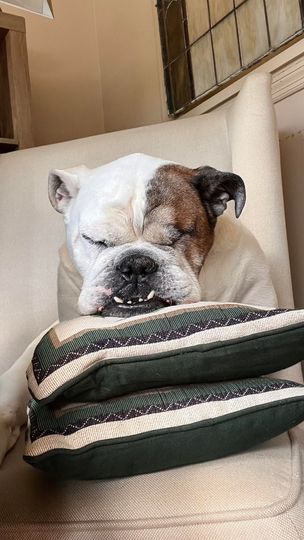
Biggest Take Aways:
Yes, bulldog snoring is their trademark and superpower and it’s because of their short snouts. But it doesn’t mean surgery is necessary.
With a few simple steps, you can help reduce it. Remember to keep the air in their sleeping area moist, try different sleeping positions, and keep an eye out for any other underlying health conditions.
And for those who are looking for a lovable, entertaining, and affectionate companion, bulldogs make great pets! If you want your very own snoring machine check with your local rescues and sign up to foster and adopt! https://www.rescuebulldogs.org/
MUST READ: The Surprising Truth About English Bulldog’s Eye Health: Common Eye Problems
MUST READ: Digestive Issues in English Bulldogs: What You Need to Know
MUST READ: English Bulldog Ear Infection Issues What you need to know
MUST READ: 4 Reasons English Bulldogs Have Breathing Issues: Causes, Treatments, and Prevention Methods

